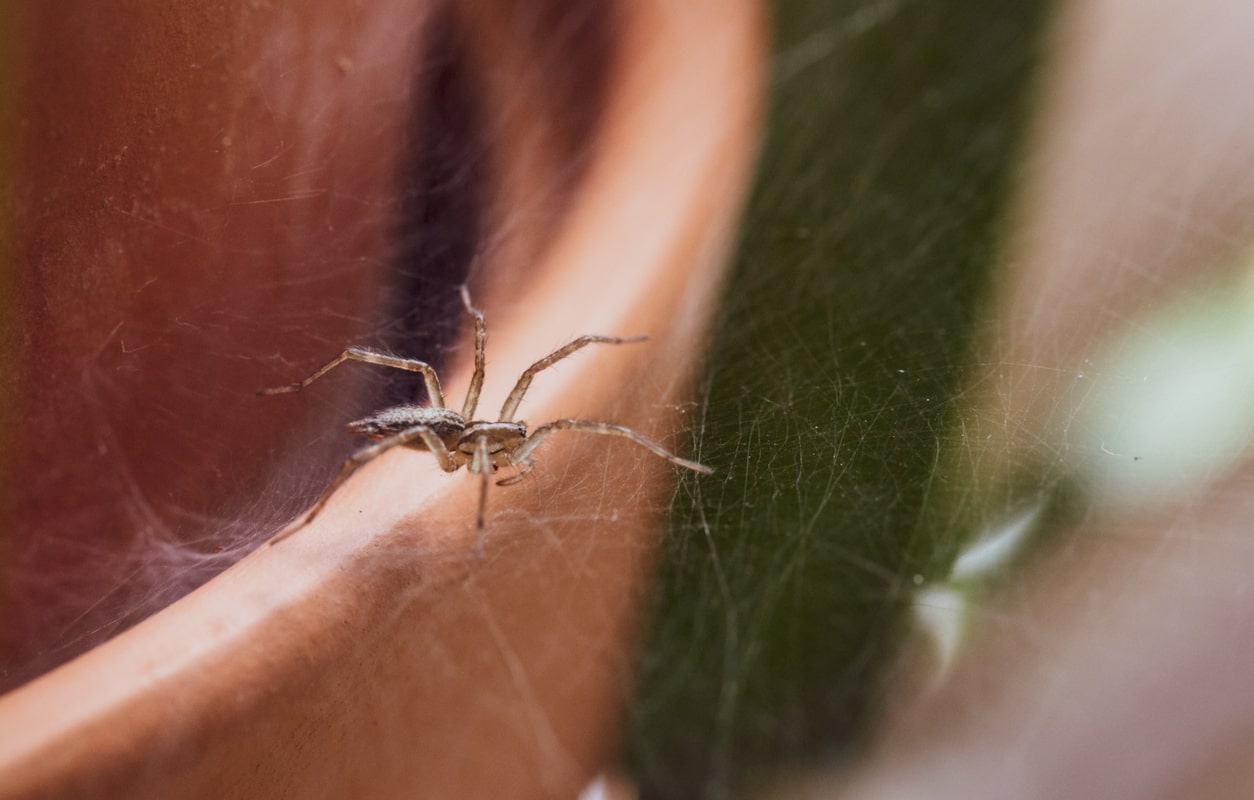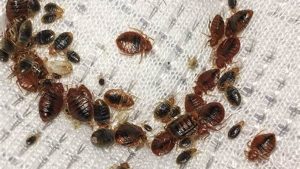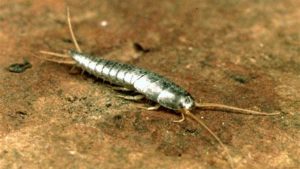Pest control is a service that attempts to eliminate the presence of pests, which includes insects, rodents, and arachnids. One common pest that people may encounter is spiders. Spiders are often seen as a nuisance and can be dangerous if they are venomous.
Pest control companies use a variety of methods to eliminate spiders, including chemical treatments, traps, and exclusion. Chemical treatments involve the use of pesticides that are specifically designed to kill spiders. Traps can be used to capture spiders alive, so they can be released elsewhere. Exclusion involves sealing up any holes or cracks in a building to prevent spiders from entering.
Pest control services can be an effective way to eliminate spiders from a home or business. However, it is important to note that spiders can be beneficial, as they prey on other insects that can be more harmful. If you are considering using pest control services, it is important to weigh the benefits and risks carefully.
will pest control get rid of spiders
Pest control is a service that can help to eliminate spiders from a home or business. There are a number of different methods that pest control companies can use to get rid of spiders, including chemical treatments, traps, and exclusion.
- Effectiveness: Pest control can be an effective way to eliminate spiders from a property.
- Safety: Pest control companies use a variety of methods to eliminate spiders, some of which can be harmful to humans and pets.
- Cost: The cost of pest control services can vary depending on the size of the property and the severity of the spider infestation.
- Convenience: Pest control services can be a convenient way to eliminate spiders from a property, as they typically do not require the homeowner to do anything.
- Environmental impact: Some pest control methods can have a negative impact on the environment.
- Health risks: Some pest control methods can pose health risks to humans and pets.
- Legal considerations: There may be legal considerations to keep in mind when using pest control services.
- Ethical considerations: There may be ethical considerations to keep in mind when using pest control services, such as the impact on non-target species.
When considering whether or not to use pest control services to get rid of spiders, it is important to weigh the benefits and risks.
Effectiveness: Pest control can be an effective way to eliminate spiders from a property.
Pest control can be an effective way to eliminate spiders from a property because pest control companies use a variety of methods that are specifically designed to target and kill spiders. These methods include chemical treatments, traps, and exclusion.
- Chemical treatments involve the use of pesticides that are specifically designed to kill spiders. These pesticides can be applied to areas where spiders are commonly found, such as baseboards, windowsills, and closets.
- Traps can be used to capture spiders alive, so they can be released elsewhere. There are a variety of different types of traps that can be used to catch spiders, including sticky traps, snap traps, and live traps.
- Exclusion involves sealing up any holes or cracks in a building to prevent spiders from entering. This can be done by using caulk, weatherstripping, or expanding foam.
The effectiveness of pest control in eliminating spiders from a property will depend on a number of factors, such as the severity of the infestation, the type of spiders present, and the methods used by the pest control company. However, pest control can be an effective way to eliminate spiders from a property and prevent them from returning.
Safety: Pest control companies use a variety of methods to eliminate spiders, some of which can be harmful to humans and pets.
When considering pest control to eliminate spiders, it’s crucial to evaluate the safety implications of the methods employed. Pest control companies utilize various techniques, some of which may pose risks to humans and pets.
- Chemical Toxicity Chemical treatments involve applying pesticides specifically designed to kill spiders. These chemicals can be harmful if inhaled, ingested, or absorbed through the skin. Exposure can cause a range of health issues, from skin irritation and respiratory problems to more severe effects on the nervous system and internal organs.
- Trap Hazards Traps can pose physical hazards to pets and children. Snap traps can cause injuries if they snap shut on fingers or paws. Glue traps can trap animals, causing distress and potential harm if not removed promptly. Live traps may carry the risk of trapped spiders escaping and re-entering the home.
- Exclusion Risks Exclusion methods, such as sealing cracks and holes, can have unintended consequences. If not done properly, these measures can trap spiders inside the home, leading to increased encounters and potential pest, spider or bug bites. Additionally, improper sealing can compromise ventilation and moisture control, creating a more favorable environment for spiders.
- Environmental Impact Some pest control methods can have negative effects on the environment. Chemical treatments can contaminate soil and water sources, harming beneficial insects and wildlife. Exclusion methods can disrupt natural ecosystems by altering predator-prey relationships and reducing biodiversity.
To ensure safety when using pest control services to eliminate spiders, it’s essential to inquire about the specific methods employed and their potential risks. By carefully considering these safety factors, homeowners can make informed decisions that balance the need for pest control with the well-being of their families and pets.
Cost: The cost of pest control services can vary depending on the size of the property and the severity of the spider infestation.
The cost of pest control services is directly related to the effectiveness of the treatment in eliminating spiders. A larger property with a more severe spider infestation will require more extensive treatment, which will result in a higher cost. Pest control companies typically charge by the square footage of the property and the number of treatments required.
For example, a small apartment with a minor spider problem may only require a single treatment, which could cost around $100. A large house with a severe spider infestation may require multiple treatments, which could cost upwards of $500.
It is important to weigh the cost of pest control services against the benefits of eliminating spiders from your property. Spiders can pose a health risk to humans and pets, and they can also damage your property. If you are experiencing a spider problem, it is important to contact a pest control company to discuss your options and get a quote.
Convenience: Pest control services can be a convenient way to eliminate spiders from a property, as they typically do not require the homeowner to do anything.
In the context of pest control, convenience refers to the ease and minimal effort involved for the homeowner when hiring a pest control company to eliminate spiders from their property. This aspect of convenience is a significant advantage, as it allows homeowners to address their spider problem without the hassle of having to prepare their home, apply treatments themselves, or deal with the cleanup.
- () One of the primary ways pest control services offer convenience is by providing, eliminating the need for homeowners to visit the pest control company’s office or store. Instead, a trained technician will come to the homeowner’s property to assess the situation and apply the necessary treatments.
- () Homeowners benefit from the professional expertise of pest control technicians. These technicians have the knowledge and experience to identify the type of spider infestation, determine the appropriate treatment methods, and safely apply them without causing harm to the homeowner or their property.
- () Pest control services save homeowners significant time and effort compared to attempting to eliminate spiders on their own. researching different treatment options, purchasing supplies, or applying treatments themselves, which can be especially valuable for those with busy schedules or limited mobility.
- () Hiring a pest control company provides homeowners with peace of mind, knowing that their spider problem is being handled by qualified professionals. Homeowners can rest assured that the treatments are being applied correctly and effectively, reducing the likelihood of the spider infestation recurring.
Overall, the convenience offered by pest control services is a key advantage for homeowners looking to eliminate spiders from their property. The, professional expertise, time and effort saved, and peace of mind make pest control services a worthwhile investment for those seeking an effective and hassle-free solution to their spider problem.
Environmental impact: Some pest control methods can have a negative impact on the environment.
When considering pest control to eliminate spiders, it is crucial to evaluate the environmental impact of the chosen methods. Some pest control practices can have detrimental effects on the natural ecosystem, which can have unintended consequences for both humans and wildlife.
Chemical pesticides, commonly used in pest control, can contaminate soil and water sources. These chemicals can harm beneficial insects, such as bees and butterflies, which play important roles in pollination and the food chain. Additionally, pesticides can accumulate in the environment, posing long-term risks to wildlife and human health.
For example, certain pesticides used to control spider infestations have been linked to declines in bird populations. Birds consume insects, including spiders, and when pesticides reduce the availability of prey, bird populations can suffer. This can disrupt the natural balance of the ecosystem and have cascading effects on other species.
It is important to consider the environmental impact of pest control methods when choosing a pest control company. Look for companies that prioritize environmentally friendly practices, such as using targeted treatments and employing non-chemical alternatives. By making informed decisions, we can minimize the negative impact on the environment while effectively addressing spider infestations.
Health risks: Some pest control methods can pose health risks to humans and pets.
The use of pest control methods to eliminate spiders raises concerns about potential health risks to humans and pets. Certain pest control techniques, particularly those involving chemical treatments, can pose a threat to the health and well-being of individuals and animals.
Chemical pesticides, commonly employed in pest control, are designed to kill or repel pests, including spiders. However, these chemicals can also have adverse effects on human and pet health. Some pesticides contain neurotoxins that can disrupt the nervous system, causing symptoms such as dizziness, nausea, and even seizures in extreme cases.
In addition to acute health effects, long-term exposure to certain pesticides has been linked to chronic health issues, including respiratory problems, reproductive disorders, and even cancer. Pets, with their smaller body size and increased susceptibility to chemicals, are particularly vulnerable to the harmful effects of pest control treatments.
It is crucial for homeowners to be aware of the potential health risks associated with pest control methods and to take steps to minimize these risks. This includes choosing pest control companies that prioritize the use of environmentally friendly and pet-safe products, as well as implementing non-chemical pest control measures whenever possible.
Legal considerations: There may be legal considerations to keep in mind when using pest control services.
When considering pest control services to eliminate spiders, it is important to be aware of any legal considerations that may apply. These considerations can vary depending on the jurisdiction and the specific pest control methods being used.
One important legal consideration is the use of pesticides. Many pesticides are regulated by law, and it is important to ensure that the pest control company you hire is licensed and certified to use these chemicals. Improper use of pesticides can pose a risk to human health and the environment, and can result in legal penalties.
Another legal consideration is the issue of liability. If a pest control treatment results in damage to your property or injuries to you or your family, you may have legal recourse against the pest control company. It is important to choose a pest control company that has a good reputation and is insured against liability.
By being aware of the legal considerations involved in using pest control services, you can help to protect yourself and your family from any potential legal problems.
Ethical considerations: There may be ethical considerations to keep in mind when using pest control services, such as the impact on non-target species.
The use of pest control services to eliminate spiders raises ethical considerations regarding the impact on non-target species. Pest control methods, particularly those involving chemical treatments, can harm beneficial insects and wildlife, disrupting the ecological balance and potentially causing unintended consequences.
For example, the widespread use of broad-spectrum insecticides to control spiders can also kill beneficial insects, such as ladybugs and lacewings, which play crucial roles in controlling other pests and pollinating plants. This can lead to an increase in pest populations and a decline in biodiversity.
Insecticides can also harm wildlife, such as birds and mammals, that consume insects. Birds, for instance, may ingest spiders and other insects that have been exposed to pesticides, leading to reproductive problems, developmental abnormalities, and even death. By considering the impact on non-target species, we can make more informed decisions about the use of pest control services and choose methods that minimize harm to the environment.
FAQs on Pest Control for Spiders
This FAQ section addresses common questions and concerns regarding the effectiveness and considerations of using pest control services to eliminate spiders.
Question 1: Can pest control services effectively eliminate spiders?
Answer: Yes, pest control companies employ various methods such as chemical treatments, traps, and exclusion techniques to target and eliminate spider infestations.
Question 2: Are pest control methods harmful to humans and pets?
Answer: Some pest control methods, particularly those involving chemical pesticides, can pose health risks if not handled properly. It’s important to choose licensed and certified pest control companies that prioritize safety.
Question 3: What are the environmental implications of pest control for spiders?
Answer: Chemical pesticides used in pest control can harm beneficial insects and wildlife, disrupting the ecological balance. Consider eco-friendly pest control options to minimize environmental impact.
Question 4: Are there legal considerations when hiring pest control services?
Answer: Yes, it’s crucial to ensure that the pest control company is licensed and certified to use pesticides. Improper use can result in legal penalties and potential liability for damages or injuries.
Question 5: Are there ethical considerations to using pest control for spiders?
Answer: Yes, consider the impact on non-target species such as beneficial insects and wildlife. Choose pest control methods that minimize harm to the environment and promote biodiversity.
Question 6: What are some non-chemical methods to control spiders?
Answer: Non-chemical methods include sealing entry points, using sticky traps, employing natural spider repellents like peppermint oil, and encouraging natural predators such as spiders.
In summary, pest control services can effectively eliminate spiders, but it’s important to consider potential risks to humans, pets, the environment, and non-target species. Choosing licensed and certified pest control companies, understanding legal considerations, and exploring non-chemical methods can help ensure effective and responsible spider control.
This discussion on pest control for spiders highlights the need to balance effectiveness with safety and environmental concerns. In the next section, we delve deeper into the ethical implications of pest control and explore alternative, sustainable approaches to spider management.
Tips for Effective Spider Control
To effectively manage spiders in your home, consider implementing the following tips:
Tip 1: Seal Entry Points
Inspect your home’s exterior for cracks or gaps around windows, doors, pipes, and vents. Seal these openings with caulk or weatherstripping to prevent spiders from entering.
Tip 2: Eliminate Hiding Places
Declutter your home and remove any unnecessary items that provide hiding spots for spiders. Regularly vacuum and sweep to eliminate webs and egg sacs.
Tip 3: Use Sticky Traps
Place sticky traps in areas where spiders are commonly seen, such as corners, behind furniture, and near windows. These traps can effectively capture spiders without the use of chemicals.
Tip 4: Employ Natural Repellents
Spiders dislike certain scents, such as peppermint and eucalyptus. Diffuse these essential oils or place cotton balls soaked in them around your home to deter spiders.
Tip 5: Encourage Natural Predators
Spiders have natural predators, such as cats, lizards, and birds. If possible, encourage these predators into your home or garden to help control spider populations.
Tip 6: Vacuum Regularly
Regularly vacuuming your home, especially in areas where spiders are commonly seen, can remove webs, egg sacs, and spiders themselves.
Tip 7: Keep Your Yard Clean
Remove piles of leaves, debris, and overgrown vegetation from your yard. These areas can provide shelter and breeding grounds for spiders.
Tip 8: Use Chemical Treatments Wisely
If non-chemical methods are ineffective, consider using chemical treatments as a last resort. Choose products specifically designed for spider control and follow the instructions carefully.
By implementing these tips, you can effectively control spiders in your home without resorting to harsh chemicals or potentially harmful methods. These measures will help you create a spider-free environment while maintaining a safe and healthy living space.
In the final section of this article, we will explore the ethical implications of spider control and discuss alternative, sustainable approaches to managing spider populations.
Conclusion
This article has comprehensively explored the question of whether pest control can effectively eliminate spiders. We have examined various aspects, including effectiveness, safety, environmental impact, legal considerations, and ethical implications.
Key points to remember include:
- Pest control services can be effective in eliminating spider infestations, but the choice of methods should consider potential risks to humans, pets, and the environment.
- While chemical treatments are commonly used, non-chemical methods such as exclusion, traps, and natural repellents offer safer and more environmentally friendly alternatives.
- It is crucial to weigh the ethical implications of pest control and prioritize methods that minimize harm to non-target species and promote biodiversity.
Ultimately, the decision of whether to use pest control for spider elimination should be guided by an understanding of the potential benefits and risks. By embracing a balanced approach that combines effective control measures with safety and environmental consciousness, we can create spider-free environments while preserving the ecological balance.




